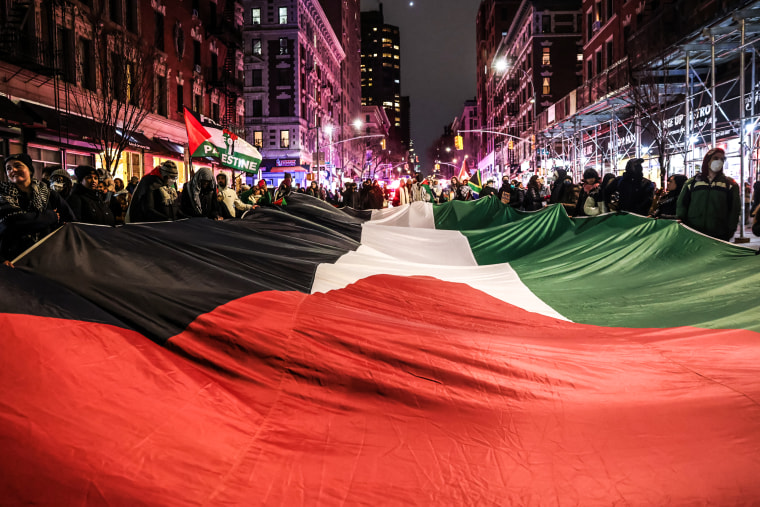Nearly half of Asian American and Pacific Islander adults believe the United States is not supportive enough of Palestinians in the ongoing conflict in Gaza, a new report shows.
Almost the same percentage said that the U.S. is too supportive of Israelis, according to the survey released this week by AAPI Data/AP-NORC. In comparison, 36% of the general population said the U.S. isn’t supportive enough of Palestinians, a separate AP-NORC poll said.
Ignoring the stances of the Asian American and Pacific Islander community on the issue could lead to trouble for President Joe Biden and the Democratic Party in particular, AAPI Data Director Karthick Ramakrishnan said.
“Asian Americans and Pacific Islanders are electorally consequential in many states,” he said. “The Democratic Party has to be concerned about where Asian Americans seem to stand on the Israel-Gaza question."
The data also showed that 45% of AAPI adults believe the U.S. is not supportive enough of Muslim communities in the country. When asked about Jewish communities, just more than a quarter said the same.
The survey featured 1,091 Asian American, Native Hawaiian, and Pacific Islander respondents aged 18 and older in the U.S. It was conducted online and over the phone Dec. 4-11 in languages English, the Chinese dialects of Mandarin and Cantonese, Vietnamese and Korean.
Ramakrishnan underscored that the findings do not point to a pro-Palestine stance, however. Just 11% of AAPI see Israel as a rival and a similar percentage see it as an adversary. Meanwhile, 40% consider Israel a “partner to cooperate with” but feel the country doesn’t share U.S. interests and values. Another 36% consider Israel to be an ally.
“This is not anti-Israeli sentiment that is coming through, but probably a concern about the humanitarian crisis in Gaza, and making sure that Palestinian civilians are alive and safe,” Ramakrishnan said.
Since the Hamas attack Oct. 7 — in which, according to Israeli authorities, some 1,200 people were killed and another 240 were kidnapped — more than 26,000 people have been killed across the Gaza Strip in the Israeli military campaign. Most of the Palestinian victims are women and children, local authorities say.
Ramakrishnan said that one factor behind the community's stance could likely be the way in which many Asian American communities come from histories of colonization.
“That is an additional dynamic for a lot of Asian Americans who come from colonized countries and who identify as minority or minoritized populations — it’s to be sympathetic and to find common cause with Palestinians who they see as oppressed people,” he said.
The survey did reveal some generational differences. AAPI adults ages 60 and older are more likely to see Israel as an ally, compared to their younger AAPI counterparts, at 50% versus 32%.
“Especially among younger AAPI voters … for whom Israel-Gaza was of higher importance for younger voters than for older voters. The Biden campaign might lose in some key states,” Ramakrishnan said.
With growing concerns over the conflict, he said, he wouldn’t be surprised if the Biden administration began to react.
The Biden administration "could perhaps even push the Israeli government either towards the cease-fire or taking great pains to ensure that deaths are minimal in Gaza moving forward,” he said.
